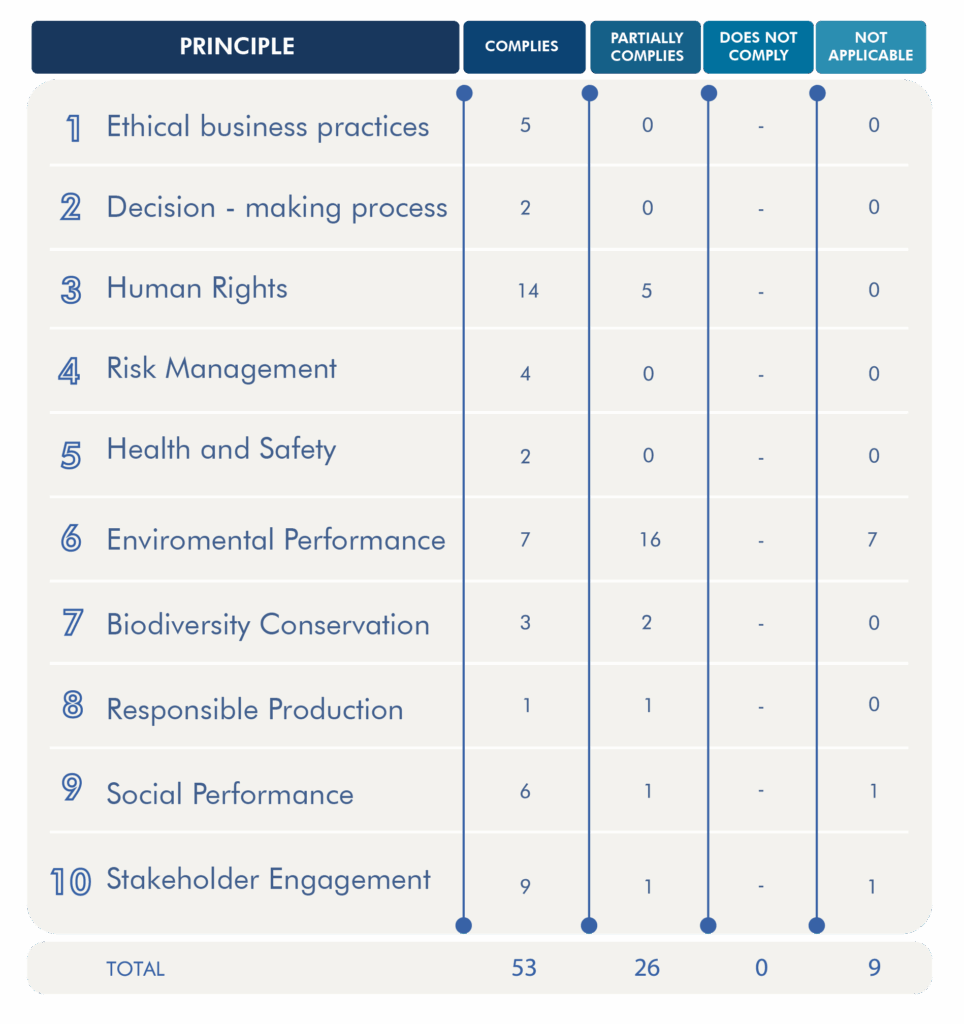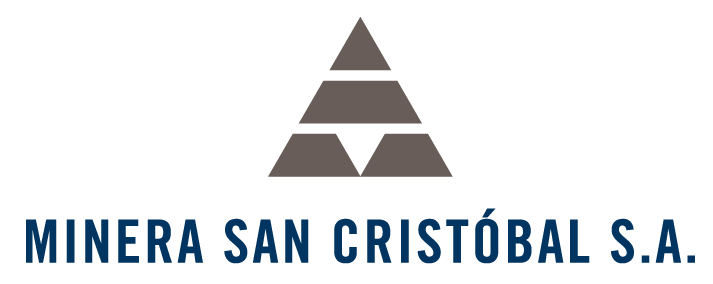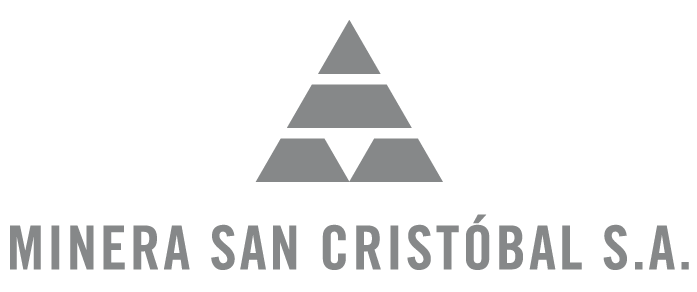ICMM
We support initiatives that improve our sustainability performance. Since May 2018, we have been a member of the International Council on Mining and Metals (ICMM), an institution that, through ten principles and nine position statements, supports the achievement of the United Nations Sustainable Development Goals.
The ICMM is a global organization founded in 2001 that brings together the world’s leading mining companies. Its objective is to promote the sustainable production of minerals and metals and enhance sustainable development in the mining industry.
The ICMM acts as a catalyst for best practices in mining and metallurgy, working to establish a safer and more sustainable industry.
OUR COMMITMENT TO THE ICMM
These are some of the activities that reflect our alignment with ICMM’s principles and position statements:
- Publication of two case studies in the ICMM “Tools for Circularity” guide:
-
- Biogas generation from organic solid waste and sludge.
- Collection and baling for reuse of PET bottles in communities.
- Second-party audit on human rights issues, conducted at supplier facilities in Chile and Brazil.
- Improvements to the Internal Regulations for the Control of Financial Practices.
- Technical studies to expand hydrogeological information in the micro-basins where our plant and tailings dam operations are located.
- Regarding climate change, we continue to close gaps in the calculation of greenhouse gas emissions (Scopes 1, 2, and 3). In 2024, we implemented photovoltaic panels to harness renewable energy in the Environment offices.
- Regarding biodiversity, we implemented a conservation and protection plan for the armadillo, a threatened wildlife species in our operation’s area of
- Report on water stewardship, operational water sources and other uses, consumption and recovery metrics, water balance, and other aspects related to water quality, risks, and opportunities associated with water management at the operation.
- Self-assessment report on alignment with GISTM (Global Industry Standards on Tailings Management) standards, with a description of construction and operational aspects, as well as the criteria applied in the assessment of operational and socioeconomic risks. The result of this self-assessment shows a low level of risk due to failure, taking into account the classification criteria defined by the ICMM good practices guide.
- Execution of technical studies and preparation of internal reports as part of the action plan to address the information gaps identified in the self-assessment of compliance with the requirements of the GISTM tailings management protocol: a) Geotechnical stability assessment of tailings containment perimeter berms, performed by Knight Piesold; b) Technical study of the failure analysis of the “North Containment Berm” at the Wila Khara tailings dam. Third-party verification of this report will be arranged.
- Environmental incident simulation due to structural failure of the tailings containment berm, aimed at identifying strengths and weaknesses in our risk analysis and contingency plan.
- Communication strategy on topics related to tailings management, currently in the preparation and dissemination phase, focused on strengthening knowledge of operational aspects and associated risks to improve stakeholder perceptions through outreach events at the local and regional authorities, with the participation of third parties (the Municipality of Colcha K and the Tomas Frías Autonomous University of Potosí).
Our level of compliance is detailed below:

Regarding partially met performance expectations, we will implement the following improvements:
Principle 3: Develop proposals that integrate gender and diversity aspects.
Principle 6: Update the closure plan and consult with other stakeholders to roll out social mitigation and environmental remediation measures.
- Plan environmental remediation and rehabilitation measures, based on the information collected through technical studies and adjustments to the life-of mine operating plan. This includes basic engineering designs and cost estimates, aligned with current legal requirements and stakeholder expectations, under the terms of the agreements signed at the beginning of the project.
- Draft a water report with a systematization of the information related to water governance, efficiency and sustainable use in operations, as well as the relationship with stakeholders at the basin level.
- Bring our activities in line with global tailings management standards, integrating aspects related to the organizational structure, competencies, roles, accountability, risk management approach and emergency preparedness.
- Bring our activities in line with global tailings management standards, integrating aspects related to the organizational structure, competencies, roles, accountability, risk management approach and emergency preparedness.
Principle 7: Deploy initiatives that integrate aspects concerning the structure, roles, accountability, operational criteria in the processes, research studies, and sustainability projects.
Principle 8: Identify opportunities to improve the management and use of materials, and make use of waste from industrial and service processes to minimize negative impacts and maximize environmental and economic benefits in all phases of the operation’s lifecycle.
Principle 9: Further actions in the field of interinstitutional collaboration.
Principle 10: Reassess compliance with Extractive Industries Transparency Initiative (EITI) expectations 6 and 7 and publish the results.
For more information, please visit: www.icmm.com/en-gb/our-principles

